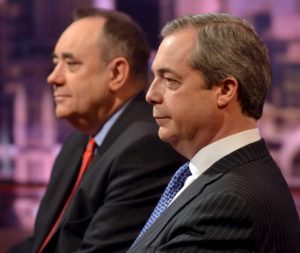A significant (and I believe growing) number of Iowans no longer fit neatly into the two historic political categories that have dominated American politics, and they are owning it.
While there have always been political outliers — those who align with the majority of one platform or the other, but are holdouts on specific topics — the current shift is different because people are self-identifying differently.
At political events in 2008 and 2012 it was not uncommon to meet Iowans who described themselves as a specific brand of party supporter. For instance, “pro-choice Republican” or “pro-gun Democrat.” Even while differentiating themselves from a larger political perception, Iowans continued to claim a party brand.
Recently, however, some of those who previously identified “centrist Democrat” or “moderate Republican” have dropped the party line. While the practice hasn’t yet made a dent in voter registration, many at party-sponsored events are now introducing themselves as “progressives,” “constitutionalists,” “populists” or “environmentalists.”
The most common identifier I’ve heard lately is “populist.” Sometimes it is qualified, i.e., “right-wing populist” or “progressive populist,” but it is used across the spectrum.
As a general rule, these Iowans distrust government to do the right thing. And, remarkably enough, on both sides of the political divide “doing the right thing” often involves inequality and a perceived unfair playing field.

Given these observations, I was fascinated by portions of the annual British Social Attitudes survey. Iowans who drop their party label often express concerns and opinions that align with members of the U.K. Independence Party, commonly known as UKIP.
Those who identify as UKIP feel they’ve been left behind economically and are adrift politically. They are incredibly anxious about the direction of their nation. Sound familiar?
While this British ideology that began in 1993 — the first to win a nationwide election in nearly 100 years —has been painted as a predominantly conservative movement, the survey shows its members hold liberal viewpoints. For instance, most UKIP members agree “gay men and lesbians should be allowed to get married if they want to.” They also believe their country has “one law for the rich and one for the poor.”
British recovery efforts are not viewed as directly benefiting the people, according to UKIP members, and they do not believe future recovery efforts will benefit the people if the country continues on the same path. They distrust the media for providing skewed values, and big business owners who benefit at the expense of workers. When “fed up” UKIP members worked together, it was to take back politics. And, by any measure, they’re moving toward the goal, even while political pundits scoff.
The path to building an effective political movement in Iowa is difficult. And, for now, it does not appear Iowans on the right and left have matched their common philosophies or have developed the intestinal fortitude required to work together. Yet even if they never do, the refusal of so many Iowans to use a political party’s label should be troubling. Voters who feel disenfranchised ultimately make sure their voice is heard.
This column by Lynda Waddington originally published in The Gazette on March 28, 2015. Photo credit: Jeff Overs/Handout/BBC/Reuters
